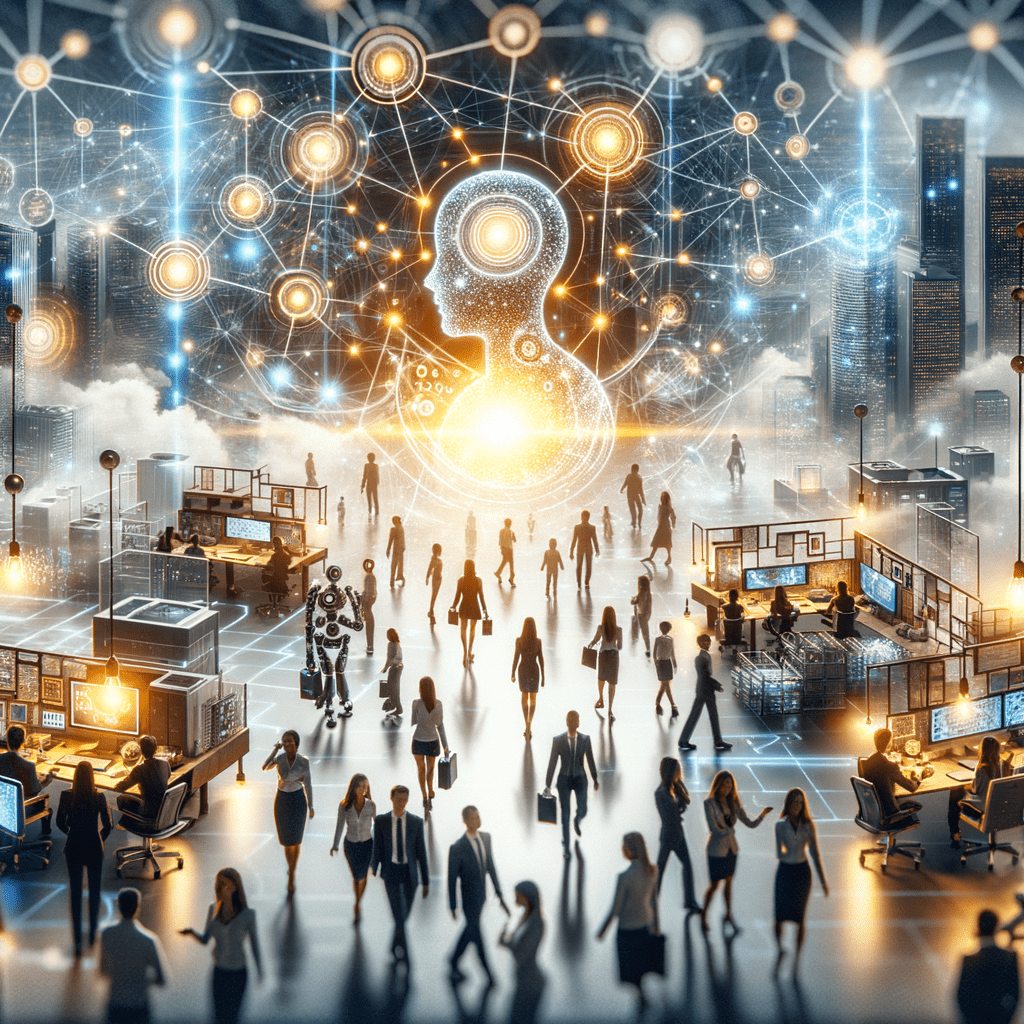Introduction
Artificial Intelligence (AI) has rapidly evolved over the past few decades, and its impact is being felt in every sector. From healthcare and finance to marketing and customer service, AI technologies are revolutionizing how businesses operate. This article explores how AI is shaping the future of business and what companies can expect from this transformative technology.
The Rise of AI in Business
AI is no longer just a buzzword—it’s a reality that businesses are using to optimize operations, improve customer experiences, and make data-driven decisions. AI tools such as machine learning algorithms, natural language processing (NLP), and automation systems are being implemented across various industries to drive innovation.
Key Areas AI is Impacting Business:
Customer Service and Chatbots: AI-powered chatbots and virtual assistants are revolutionizing customer service by providing instant responses to customer inquiries. These systems use NLP and machine learning to understand customer queries and offer personalized solutions.
Data Analysis and Insights: AI can process vast amounts of data in real-time, allowing businesses to uncover insights and trends that would have been impossible to detect manually. This enables companies to make more informed decisions and gain a competitive edge.
Marketing and Personalization: AI plays a critical role in marketing automation and customer segmentation. By analyzing customer data, AI can create targeted campaigns, recommend personalized products, and optimize ad spending for better ROI.
Supply Chain and Logistics: AI is helping businesses streamline their supply chain operations by predicting demand, optimizing inventory, and reducing operational costs. Machine learning algorithms can forecast product demand and help businesses adjust their production schedules accordingly.
AI and Automation: A Game Changer for Efficiency
One of the most significant contributions of AI to business is its ability to automate repetitive and time-consuming tasks. Automation frees up valuable human resources, allowing employees to focus on more strategic, creative tasks. AI-powered automation tools can perform tasks such as data entry, scheduling, and even complex decision-making processes.
For example, AI-driven tools like robotic process automation (RPA) can automate tasks in accounting, HR, and IT, reducing the need for manual intervention. This not only increases efficiency but also reduces the risk of human error.
The Future of AI in Business
As AI continues to advance, businesses can expect even greater opportunities for growth and innovation. In the coming years, AI is expected to:
Enhance Collaboration: AI tools will become increasingly integrated into collaborative platforms, enabling seamless communication and workflow automation among teams.
Improve Customer Experience: AI will continue to personalize customer interactions by leveraging advanced data analytics and predictive modeling to deliver tailored solutions in real-time.
Revolutionize Product Development: With AI, companies can expedite the product development process by using predictive analytics and simulation techniques to test and refine new products before launching them in the market.

Challenges and Ethical Considerations
While AI offers numerous benefits, it also brings about certain challenges, especially in terms of data privacy, security, and ethical considerations. Businesses must navigate these challenges carefully to ensure that they are using AI responsibly and transparently.
Some concerns include the risk of bias in AI algorithms, job displacement due to automation, and the need for stricter regulations to govern the use of AI technologies.
AI is set to redefine the future of business. Companies that embrace AI and integrate it into their operations will have a competitive advantage, enhancing efficiency, innovation, and customer satisfaction. However, it is crucial to address the challenges and ethical issues that come with AI adoption to ensure that this powerful technology benefits businesses and society as a whole.


